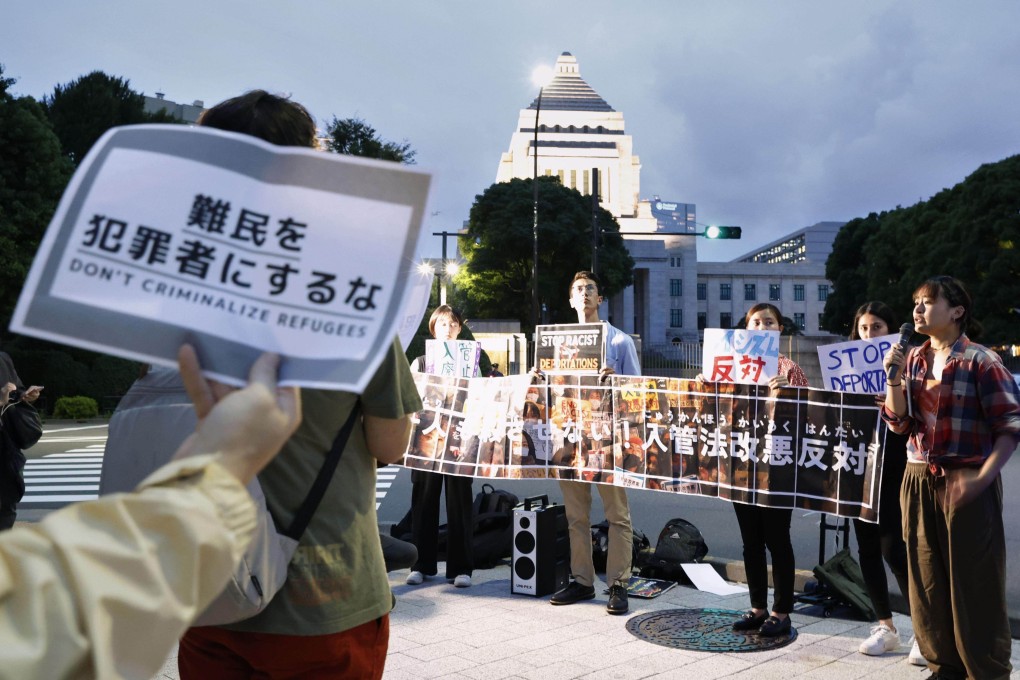Japan passes controversial ‘life and death’ bill to revise immigration law for refugees
- The bill aims to reduce long-term detention in immigration facilities and encourage expulsion of those who do not comply with deportation orders
- Opponents argue that the new legislation could repatriate those at risk of persecution in their home countries, and also expel children born and raised in Japan

Japan’s parliament on Friday passed a bill to revise an immigration and refugee law to enable authorities to deport individuals who repeatedly apply for asylum status, despite objections from some opposition parties.
Opponents to the legislation gathered in front of the Diet building in Tokyo in the rain, demanding the bill be scrapped, while opposition lawmakers criticised the ruling camp for having “bulldozed” the bill.

Under the amended law, the government will aim to reduce long-term detention in immigration facilities and encourage the expulsion of foreign individuals who do not comply with deportation orders issued for overstaying.
Opponents have argued that the revised legislation could result in the repatriation of those who are at risk of persecution in their home countries, endangering their lives, and also lead to the expulsion of children who were born and brought up in Japan.
As of the end of last year, 4,233 foreign nationals had refused to return home despite being ordered to do so, according to the Immigration Services Agency of Japan.
The law will allow the government to expel individuals who fail to present reasonable grounds to be granted refugee status after their third request.